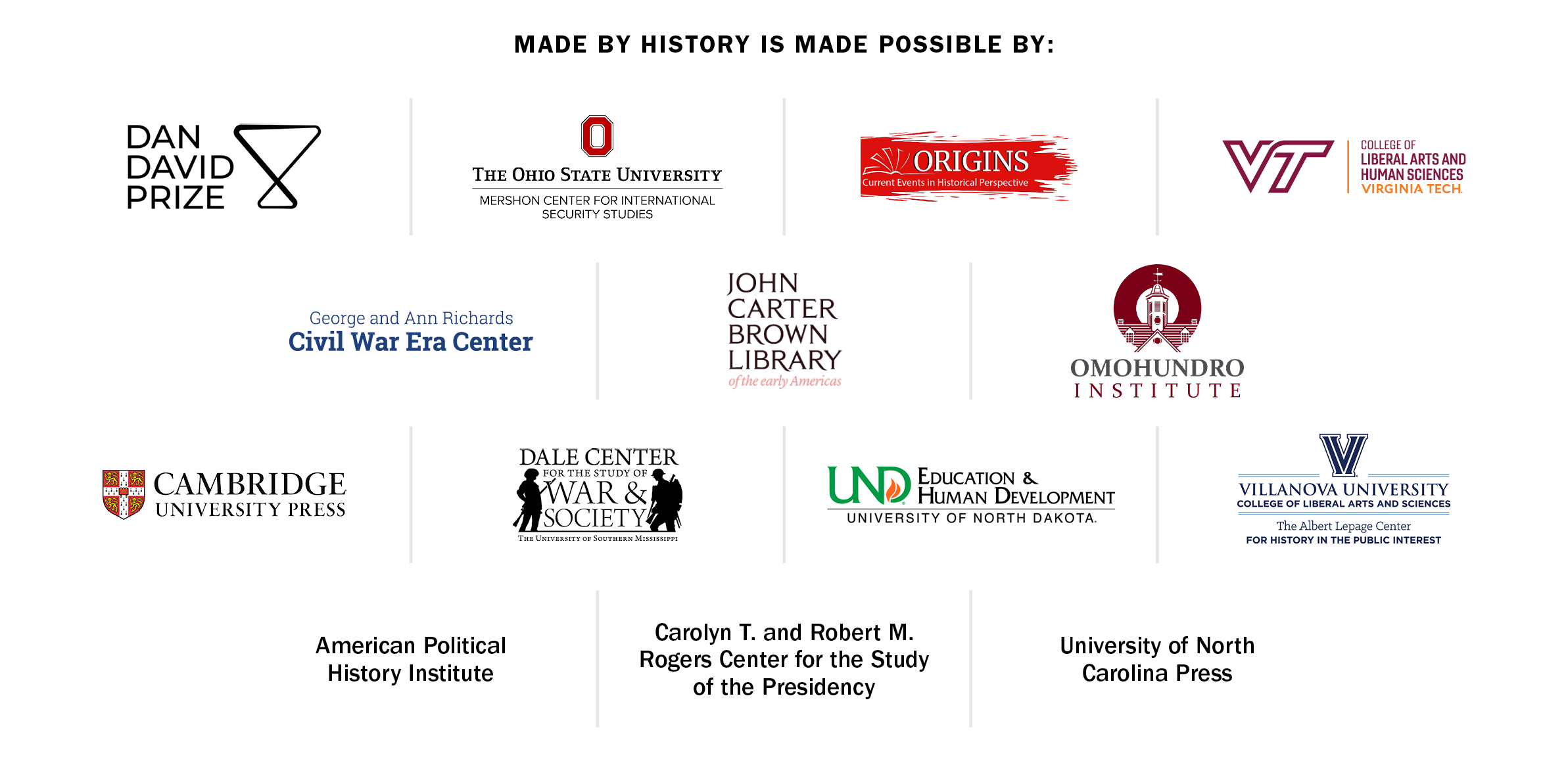
This past summer's uproar over "Try That in a Small Town," a song by country music star Jason Aldean, is over—but with the school year underway, the controversy over the song remains an instructive example of the repercussions of America’s dangerously fractured education system.
“Try That in a Small Town” topped the charts despite echoing the ugliest bits of America’s violent racist past. The accompanying music video even took place at the site of an infamous 1927 lynching, and originally appeared to warn Black Lives Matter protesters not to “try that in a small town.” The singer insisted his song had nothing to do with race and expressed outrage over the ties critics have drawn between it and our sordid, racist past. But perhaps it is unsurprising that Aldean was so stunned by the backlash.
After all, he went to schools that used textbooks produced by Abeka, a publishing company that has long been part of the effort among conservative institutions to teach an airbrushed version of history—one that presents a narrow vision of a heroic, Christian, capitalist America. For the most part, these books have been limited to private schools and homeschools, though the founders of these networks always hoped to influence public life.
The furor over “Try That in a Small Town” demonstrates one way those institutions have succeeded.
More From TIME
Abeka’s roots go back to the 1925 Scopes Trial, which pitted evolutionary science and expert academic knowledge against local control and religious dogma. After the trial, which produced reams of journalistic mockery of conservative religion, prominent fundamentalists like Bob Jones Sr. decided that America needed a new kind of educational institution, one free from the influence of mainstream academic expertise. He founded Bob Jones College in Florida (now Bob Jones University in South Carolina) to provide white conservative Christians with a “fighting base.”
Read more: The Civil War Never Stopped Being Fought in America’s Classrooms. Here’s Why That Matters
Bob Jones University succeeded in many ways. By the 1960s, Jones called it the “World’s Most Unusual University,” holding on to its segregationist origins and fiercely refusing to work even with other conservative evangelical allies. Yet to some of its alumni, Bob Jones University was not conservative enough.
Arlin and Rebeka Horton graduated from BJU in 1951. By 1954, they had founded their own school in Pensacola, Fla., eventually expanding to include Pensacola Christian College. In 1972, the Hortons accused the leadership of Bob Jones University of surrendering to “progressive” trends in education. The Hortons thought that the leaders of BJU had adopted too many secular ideas, such as focusing on child-centered teaching. They started their own textbook publishing company — originally A Beka Books, from a combination of their first names — to offer a more conservative alternative. At first, they purchased the copyrights for older, out-of-print textbooks and added biblical quotations and patriotic clip-art to the margins.
The Hortons were not the only ones who wanted more radically conservative textbooks. During the late 1970s, a network of white-dominated private religious schools grew rapidly. These schools promised to maintain prayer and traditional teaching. Most importantly, they promised a refuge from court-ordered desegregation efforts. These schools needed textbooks that would teach the lessons that parents who opposed such measures wanted their children to learn.
In response, Abeka expanded its publishing efforts. The company eventually published original textbooks in every subject, for every grade. The goal was to provide an alternative kind of curriculum, one that—in the words of one Abeka leader in 1979—would teach students to cherish the Bible, “master the three R’s,” maintain a healthy “respect for authority,” and develop “pride in America.”
The history content of Abeka textbooks was—and remains—dramatically distinct from mainstream books.
One section of the latest edition of the high-school textbook, United States History: Heritage of Freedom, is titled “Birth of a Nation,” evoking the infamous 1915 pro-Ku-Klux-Klan film of that name. Moreover, in teaching the aftermath of the Civil War, instead of focusing on the violence that derailed Reconstruction-era governments, the textbook explains that Reconstruction failed because many formerly enslaved people were “not prepared for political responsibility.” The book does briefly note that “some Southern whites used illegal methods” and “terror tactics,” including forming the KKK. Yet, that mention of white terrorism is buried within an overall message of white victimhood.
In another example, the textbook equates the existence of white-supremacist politics in the 1920s with other forms of “social unrest”—including the formation of the National Association for the Advancement of Colored People. The book even argues that communism, not white-supremacist groups like the KKK, was the true “threat” to civil rights efforts. In this misleading telling, early leaders of the NAACP such as W.E.B. DuBois grew “disillusioned with the civil rights movement” and embraced communism, imperiling the movement.
Read more: What Reading 220 History Textbooks Taught One Scholar About Racism in America
Its description of more recent history is similarly skewed. The book dismisses the horrific 1991 police beating of Rodney King, saying, “While police brutality occurs in America, it is typically on a smaller scale than the media portrays.” The true villains of the King story, in the Abeka version, were the Black “rioters [who] destroyed over one thousand buildings and caused over two thousand injuries and sixty deaths.”
It is not difficult to see how a student could walk away from this kind of textbook with a flawed understanding of America’s racial past, and there may be millions of students who do so. As of 2019, Abeka’s market included a large slice of America’s 1,689,726 homeschooled students as well as nearly three-quarters of a million students in “conservative Christian” private schools.
When it comes to Abeka’s vision of history in particular, the U.S. Supreme Court recently opened the door to an even broader potential impact. In 2022, in Carson v. Makin, the court’s 6-3 conservative majority decided that religious schools using Abeka textbooks could not be excluded from a state program that placed some high-school students in private schools.
Alarmingly, with America’s educational divisions only growing deeper, the market for Abeka books, and others like them, may expand.
Even more concerning, the Abeka curriculum is not the only one that is being pushed into tax-funded history classrooms. Hillsdale College in Michigan has been embraced by the governors of Florida and Tennessee for its skeletal history curriculum, one that teaches high school students that the Founding Fathers should be given credit for their “efforts . . . to abolish slavery.”

And leaders in Florida and Oklahoma recently agreed to include videos from PragerU as part of their accepted public-school curriculum. PragerU says its videos “promote American values,” but critics have pointed out troubling content, such as one video in which Christopher Columbus tells two fictional time-traveling children, “Being taken as a slave is better than being killed, no? I don't see the problem.”
Read more: What It Means That Florida Will Allow Conservative PragerU Content in Schools
Along with these other conservative counter-histories, the message of the Abeka curriculum is not fading away, but rather gaining steam, fueled by the prospect that schools might be able to use taxpayer dollars to teach its stilted version of the past.
Adam Laats is Professor of Education and History at Binghamton University (SUNY). He is the author of books such as The Other School Reformers, Fundamentalist U, and the forthcoming Mr. Lancaster’s System: The Origin of America’s Public Schools. Made by History takes readers beyond the headlines with articles written and edited by professional historians. Learn more about Made by History at TIME here.
Correction, Oct. 12:
The original version of this story misstated where Jason Aldean went to school. Aldean attended Windsor Academy, a school that uses Abeka books; he did not attend Pensacola Christian College.
More Must-Reads from TIME
- Cybersecurity Experts Are Sounding the Alarm on DOGE
- Meet the 2025 Women of the Year
- The Harsh Truth About Disability Inclusion
- Why Do More Young Adults Have Cancer?
- Colman Domingo Leads With Radical Love
- How to Get Better at Doing Things Alone
- Michelle Zauner Stares Down the Darkness
Write to Adam Laats / Made by History at madebyhistory@time.com
